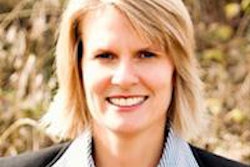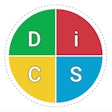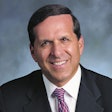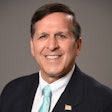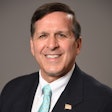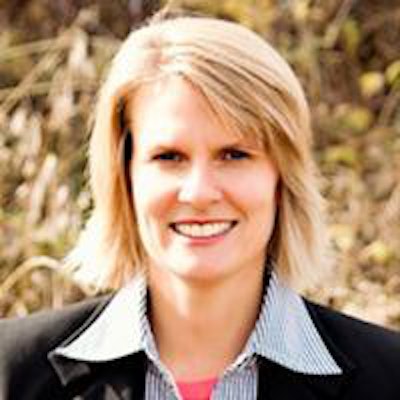
After reading Men Are From Mars, Women Are From Venus, I scratched my head with doubts and disagreements. This book about understanding the differences between men and women simply did not fit my viewpoint. I actually thought I was from Mars and maybe my husband was from Venus. We both could relate to the male and female perspectives described in this book, yet we were critical of the overgeneralizations made about typical male and female relationships.
 Lisa Knowles, DDS.
Lisa Knowles, DDS.These overgeneralizations often get us in trouble in dentistry. Let me give you an example. Shortly after my residency, I attended my first local dental society meeting. My husband and I arrived at the restaurant, and a nice gentleman came up to greet us. He stuck his hand out to my husband and asked him where he practiced. My husband embarrassingly explained that I was the one who just started practicing in the area. The man shook my hand and walked away without another word.
I was annoyed to say the least and never went back to another meeting. In retrospect, that was a little immature on my part and certainly not very forgiving, but that's what happens when we are young and not so wise, and when no one apologizes for their mistakes.
When we get caught up in gender (or cultural) generalizations, we often shoot ourselves in the foot. We miss opportunities to welcome in and engage new members because we lean too far to one gender bias side or the other. We are too masculine or too feminine.
I believe it's the gender-bender person that takes the prize in dentistry. Without continuing education on cultural and gender awareness, we can be the best crown preppers around, but by remaining completely unaware, we jeopardize our practice's long-term success.
Here are my top tips for being a gender-bender communicator and reap the rewards of appreciative patients and sizable profits.
Assume nothing. Never assume a female or male in the dental profession is an assistant, hygienist, or dentist. Ask first. As Bob Dylan said in the 70's "Times are a changin'," and they still are in dentistry. Acknowledge the changing demographics and work with the change rather than being a naysayer against the change. Furthermore, the person who is most open to the change and welcomes the change will likely find the most qualified associate or hygienist. Rather than focusing on how it was or how it should be, focus on how it is and move forward. Evolve.
During this transition time in dentistry, learn about people different than you. Yvonne Fulbright, PhD, wrote a great blog post entitled, "Male-Female Communication: De-Bunking the Mars-Venus Myth." She dissects the notion that women talk more than men or that they are less direct than men. With any research completed, there is always change and newer research. We like to quote things we agree with and perpetuate those views in our conversations. If we hold on to our views and find research to match our views, we have a hard time evolving as needed. Stay open to new ideas, new people, and new research.
Gear down your competitive nature so that you can be open to new ideas and new people. In dental school, we learned some very bad competitive habits. Simply getting into dental school was competitive, and once there, the "gunner syndrome" fired up even more intensely. I believe the structure to get into advanced specialty schools helped create this environment. With only the top 10% of the class being admitted to these programs, it creates a hostile, competitive environment, because many of us had no idea if we wanted to specialize right away or not. So, we all "gunned" for the top early on. These traits are hard to change once out of school. We are used to being competitive, and we have gotten good at outpacing others. Worse yet, we have learned how to legitimize our actions -- almost unconsciously. Learning to withhold information or intentionally leaving someone hung out to dry for our advancement is not exactly the team player most of us now want to be. Yet, competition gets the best of us, and sometimes we fall back into our old habits. Break them!
Avoid the usage of female dentist or male hygienist as much as possible to delineate differences. Patients do not need to be asked if it's OK for them to be seen by a male hygienist or a female dentist. It's irrelevant. If the professional is new in the office, seeking patient approval is quite natural -- adding in gender qualifiers is not. Making a big deal about it tells the new team member that you may value what your patients' think more than how much you value him or her.
Recognize that men and women communicate differently. Try not to insinuate that one speech pattern is better or more valuable than another. Learning to blend the two styles is often the sweet spot for patients. They want someone who relates to them appropriately and communicates to them effectively. Be Goldilocks and err on the side of not too much of one thing or another: not too much talking, not too little talking; not too much nodding in agreement, not too little.
Dentists need to set the language tone in their predominately female offices. "The girls" up front is outdated and unprofessional sounding. Use personal names to help patients connect your team to them. Example: "Joanie, our patient care coordinator, will help you get that next treatment scheduled." This is much more professional than, "One of the girls up front will help you check out." Personally, I picture a 16 year-old up front chewing bubble gum, and I lose faith in that person's ability to help me. Additionally, it could come across as a power imbalance perceived by your patients. If a male dentist, in particular, refers to his team members as "girls," some patients may think he does not value them as much. Now, not everyone thinks this way, and when it comes to patients, it's best to match your language to your patients' language. Never correct a patient unless it's flat out demeaning or disrespectful.
As professionals, we have an obligation to treat others fairly and equally. If we set the tone in our offices to match professional business language, we have a better chance of not offending our patients -- some of them are high-end business people and completely up-to-date in gender language usage. When we are not up-to-date with our language, it comes across as being outdated. It's not just equipment that becomes outdated in our offices: It's our language, too. When I opened my practice, I changed the information form to say, "spouse or partner" from "spouse" benefit information. Inclusive, professional language says a lot about your practice and your level of awareness to others' needs. Don't underestimate the power of language and the need to renovate your team's vocabulary or forms.
Gender differences are hard to recognize. We all have different opinions, different experiences, and different genetics to bring to the dental table. With dental schools now graduating men and women in fairly equal proportions, our profession must adapt and evolve to meet the needs of each professional. We all will need to unlearn things we have heard, believed, or read. We will need coaching on this, and we will need continuing education courses on this; it's often hard to see our blind spots or understand differences, but it will be worth it as we treat and work with a more diversified group of people. Our future vitality depends upon it.
Lisa Knowles, DDS, is the founder and CEO of IntentionalDental Consulting. For more information, contact her at [email protected] or 517-331-3688. Visit her blog site at Beyond32Teeth.com or website at IntentionalDental.com.
The comments and observations expressed herein do not necessarily reflect the opinions of DrBicuspid.com, nor should they be construed as an endorsement or admonishment of any particular idea, vendor, or organization.





